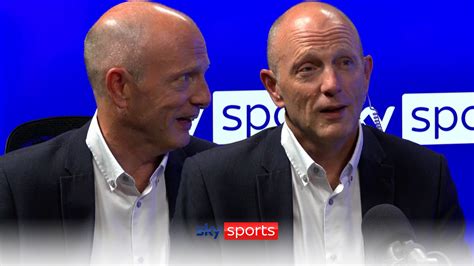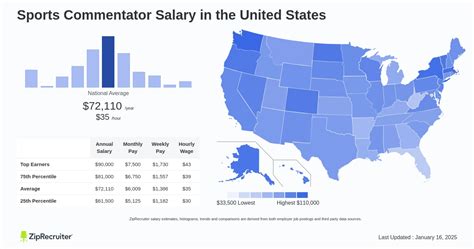For many sports fans, the idea of getting paid to watch games and share their insights sounds like a dream job. From the iconic calls of a play-by-play announcer to the expert analysis of a color commentator, these professionals are the voice of the game. But what does that dream job actually pay? While top-tier commentators like Jim Nantz and Tony Romo earn multi-million dollar salaries that make headlines, the reality for most in the field is quite different.
This article breaks down the salary a sports commentator can expect, the key factors that determine their earning potential, and the future outlook for this competitive and exciting career.
What Does a Sports Commentator Do?

Before we talk numbers, let's clarify the role. A sports commentator, also known as a sports announcer or broadcaster, provides real-time commentary and analysis during a sporting event. Their primary goal is to enhance the viewing or listening experience for the audience. The role typically falls into two categories:
- Play-by-Play Announcer: This is the lead voice of the broadcast. They describe the action as it unfolds, keeping the audience informed of the game's progress, score, and key moments.
- Color Commentator (or Analyst): This individual provides expert analysis, background information, and context. They are often former players or coaches who leverage their experience to explain strategy, player technique, and the "why" behind the action.
Beyond the live broadcast, their work involves extensive research, preparation, and often, post-game analysis and interviews.
Average Sports Commentator Salary

The salary for a sports commentator has one of the widest ranges of any profession. Earnings are heavily skewed by a small number of nationally recognized figures. However, by looking at aggregated data, we can establish a realistic baseline.
According to Salary.com, the median salary for a Sports Announcer in the United States is approximately $60,195 as of late 2023. The typical salary range falls between $49,438 and $74,833.
Other authoritative sources provide a similar picture:
- Payscale reports a slightly lower average base salary of around $55,000, with the range spanning from $32,000 for the bottom 10% to over $125,000 for the top 10%.
- Glassdoor places the average total pay (including base and additional pay like bonuses) around $64,000.
It's crucial to understand this data reflects the majority of working professionals in local radio, minor league sports, and collegiate athletics. Entry-level positions at small-market radio stations or for university sports streams may start in the $30,000 to $40,000 range, while top commentators at national networks like ESPN, FOX, and CBS can earn salaries well into the seven or even eight figures.
Key Factors That Influence Salary

What separates a $45,000 salary from a $4.5 million one? Several critical factors determine a commentator's earning potential.
### Level of Education
While there is no strict educational requirement to become a sports commentator, a bachelor's degree in Journalism, Communications, or Broadcasting is highly advantageous. A formal education provides foundational skills in research, writing, on-air delivery, and production. More importantly, university programs offer invaluable access to student radio stations, television studios, and athletic departments where aspiring commentators can build a portfolio and gain their first on-air experience—a critical step for securing a paying job after graduation. However, in this field, a polished demo reel and proven talent will always outweigh a degree on its own.
### Years of Experience
Experience is arguably the most significant factor in a commentator's career progression and salary. The path is often a long one that involves "paying your dues."
- Entry-Level (0-3 years): Commentators often start at the bottom, calling high school or small college games for little to no pay, working at local radio stations in small markets, or broadcasting for minor league teams. Salaries here are modest.
- Mid-Career (4-10 years): With a proven track record, a commentator can move up to larger college programs (e.g., a Division I university), regional sports networks, or larger local media markets. This is where salaries begin to align with the national median.
- Senior/National Level (10+ years): Reaching a national network like ESPN, NBC, or Turner Sports is the pinnacle. These roles are incredibly competitive and reserved for the best in the business. At this level, experience, name recognition, and a unique on-air personality command salaries in the high six-figures and beyond.
### Geographic Location
As with many professions, location matters. Commentators working in major media markets and cities with multiple professional sports franchises typically earn more. According to Salary.com, cities like New York, Los Angeles, and Chicago offer salaries that are significantly higher than the national average due to a higher cost of living and the concentration of major league teams and broadcast headquarters. Conversely, a commentator working in a small, rural market will likely earn on the lower end of the scale.
### Company Type
The type of employer is a massive determinant of salary. The budget and reach of the broadcaster directly correlate with pay.
- National Networks (ESPN, FOX, CBS, NBC, etc.): These are the highest-paying employers by a vast margin. They broadcast the most-watched sporting events (NFL, NBA, Olympics) and can afford to pay top dollar for elite talent.
- Regional Sports Networks (e.g., YES Network, Bally Sports): These networks cover professional teams in a specific geographic area. They offer competitive salaries, often in the six-figure range for their lead commentators, but below the national network level.
- Local TV and Radio Stations: These employers offer salaries that are generally closer to the national median. Pay depends heavily on the market size.
- College/University Athletic Departments: Many universities now employ their own commentators for streaming services like ESPN+. Salaries can vary dramatically based on the size and prestige of the athletic program.
- Digital/Streaming Services (Amazon, Apple TV+, etc.): As these tech giants enter the live sports market, they are creating new, high-paying opportunities for top-tier broadcasting talent.
### Area of Specialization
Finally, what you cover—and how you cover it—impacts your paycheck.
- Sport: Commentating for premier, high-revenue sports like the NFL, NBA, and Major League Baseball offers the highest earning potential due to massive television contracts and viewership. Niche sports, while offering dedicated fan bases, generally have smaller budgets for broadcast talent.
- Role: The distinction between play-by-play and color commentator is also a factor. While play-by-play is the backbone of the broadcast, high-profile analysts (color commentators)—especially former star players or coaches—can often command higher salaries due to their name recognition and unparalleled expertise (e.g., Troy Aikman, Greg Olsen, and the aforementioned Tony Romo).
Job Outlook

The career outlook for announcers is mixed, requiring a strategic approach from newcomers. The U.S. Bureau of Labor Statistics (BLS) projects that employment for "Announcers" is expected to decline 10 percent from 2022 to 2032. This decline is largely attributed to the consolidation of traditional radio and television stations.
However, this statistic doesn't tell the whole story. The BLS also notes that opportunities are growing in new media. The proliferation of internet-based radio, podcasts, sports-specific streaming services, and team-owned digital content is creating new avenues for talented commentators. Aspiring professionals who are tech-savvy and can build a personal brand on digital platforms will find themselves better positioned for success.
Conclusion

Becoming a successful sports commentator is a marathon, not a sprint. While the headline-grabbing multi-million dollar contracts are reserved for a select few, a fulfilling and financially rewarding career is achievable for those with talent, persistence, and a strategic approach.
Here are the key takeaways:
- Realistic Expectations: Expect to start small, with a modest salary, and work your way up through experience. The median salary hovers around $60,000, but this is highly variable.
- Experience is King: Build a portfolio and demo reel by taking any opportunity you can, from college radio to local league webcasts.
- Be Strategic: Target employers and sports that align with your career goals. Understand that national networks and major sports pay the most.
- Embrace New Media: The future of sports broadcasting includes digital platforms. Developing skills in podcasting, social media, and digital content creation can provide a significant competitive edge.
For those with a deep passion for sports and a gift for communication, the journey to the broadcast booth, while challenging, remains one of the most rewarding careers in the professional world.
